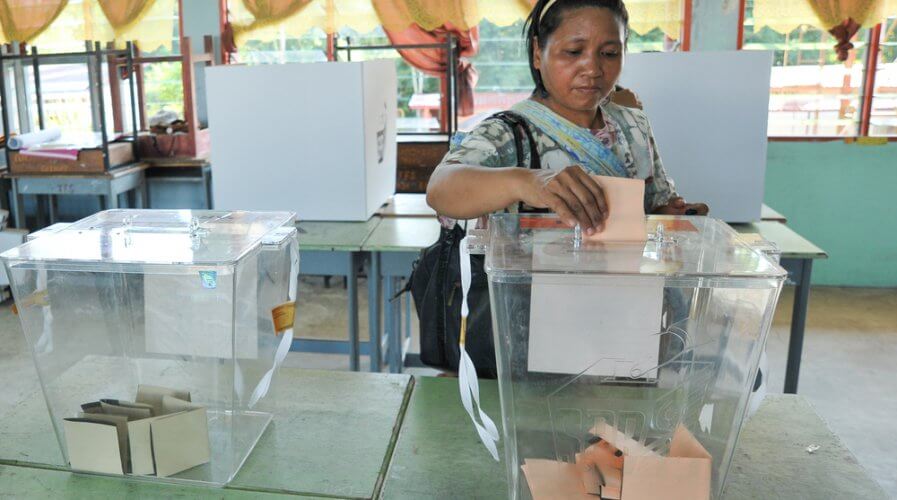
Campaigning for elections is like running a business. You need to know your audience or risk losing the country. Source: Shutterstock
The data of political emotions and modern-day elections
POLITICS works like a business, especially during elections. You’re trying to get your message heard by potential voters, and racing to get there before your rivals do.
Megaphones stuck on a van and TV appearances might have been enough 30 years ago.
Today, political campaigning is a whole different ballgame. People get their information online, and that is where political campaigners are headed.
It’s just business
Just as a corporation would collect data for targeted marketing; campaigns do the same.
Now, more than ever, campaigns are aware of details of their constituents – what they read, which shows they watch, what music they enjoy, where they shop, which products they buy.
These details help campaigns identify potential voters and target the right kind of content.
From there, campaigns build their brand identity; and emotion sells.
Stories that appeal to a voter’s fears and desires are the most effective in shifting perceptions and leanings of voters.
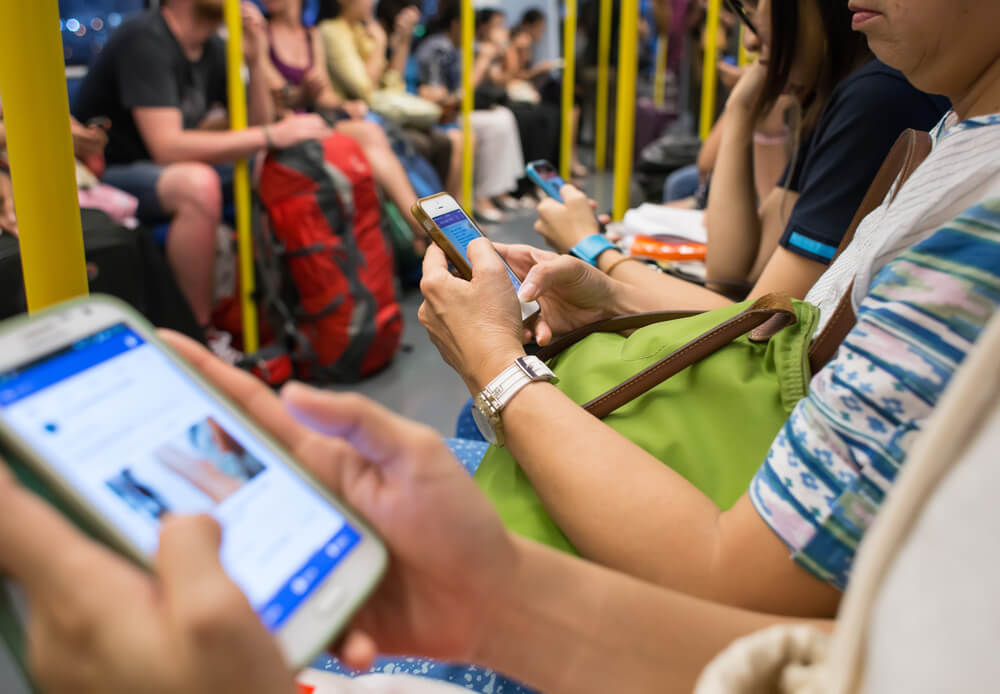
Social media is a goldmine data for governments to leverage during an election. Source: ShutterStock
Ever since the advent of Facebook and Twitter, social media has become the gold mine for data. A quick search on hashtags alone can yield tons of results that many campaigns use for analytics.
“There would not be any political campaigns in the world that is not increasingly using data,” said Simon Banks, the Managing Director of Hawker Britton in an interview with Tech Wire Asia.
Banks is one of Australia’s veterans in government relations, campaigning, and strategic communications. In the 20 years he’s serviced Australia’s political scene, he’s seen data affecting voter behavior.
Just with analytics drawn from hashtags alone, campaigners can anticipate voter demand, and how a candidate will perform in the near and long-term. This drastically improves the efficiency of fund-raising, allowing them to refine their messaging.
Data helps campaigns make more informed decisions. “Provided it’s being used appropriately,” added Banks.
“Information can be misused – as we’ve seen with the Cambridge Analytica scandal – and we don’t want to encourage that. But when data is being used with the right privacy controls, it is a very powerful tool.”
Trump against the odds
“Tech has made money and insider access less important in politics,” Will Bunnett told Tech Wire Asia. “It used to be that you needed a lot of money to win.”
Bunnett is the Principal of US-based Clarify Agency. Previously, he worked on projects for many prominent US politicians, including former President Barack Obama, Senator Elizabeth Warren, and Senator Chuck Schumer.
The old ways of reaching your audience were on TV, and raising that money required connections to some really rich people in the country.
That is no longer the playbook. Raising small amounts of money efficiently allows campaigners to run ads that are effective.
“Just look at Donald Trump getting outspent by Hillary Clinton in 2016 and still winning the race,” Bunnett observed.
Marketing strategy in the tech industry reflects this as well. Tesla has not spent any notable budget on advertising, but the demand has been through the roof.
What Tesla’s CEO Elon Musk and Donald Trump have in common, is their propensity to speak in bombastic terms. They also know how to leverage the power of social media to get their point across.
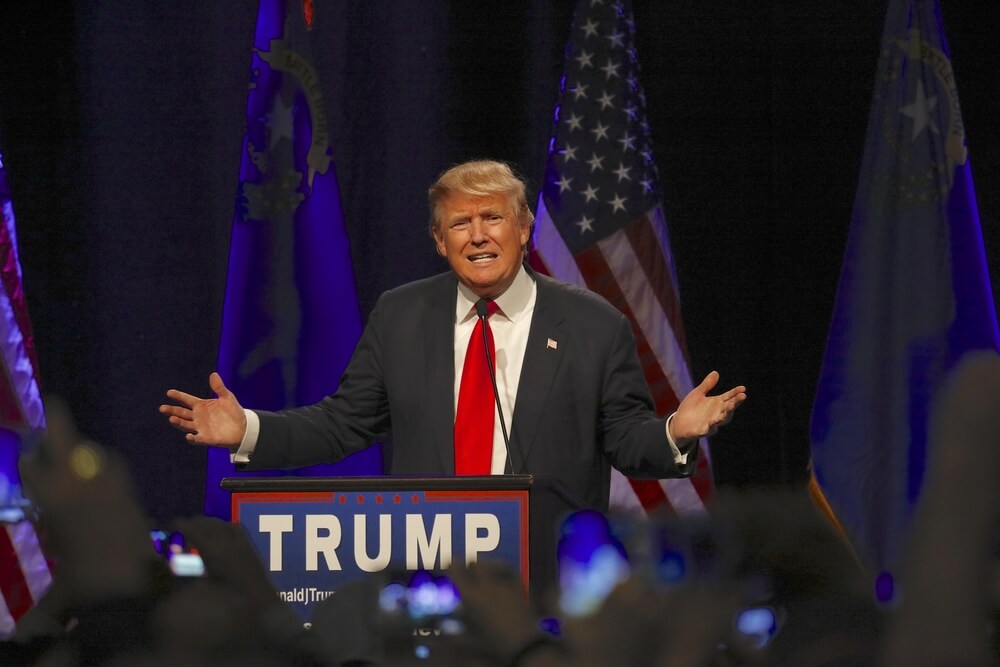
Current US President Donald Trump, won the 2016 elections despite spending less than rival Hillary Clinton. Source: ShutterStock
Trump won the elections through clever use and targeting of emotions of the masses. He had a team behind him who knew how to use data.
When it emerged that Facebook’s users’ data have been misused by Cambridge Analytica in the 2016 presidential elections, the world has a glimpse of how powerful data was.
Unlike the Clinton campaign, who also leveraged on data; Cambridge Analytica went beyond the traditional data type.
Clinton’s camp busied themselves with voter registration, policy surveys, party affiliation, voting records, etc. Instead, Cambridge Analytica carefully curated consumer data and psychological profiles.
The result? A big victory for Trump.
The data of hope
On the other side of the globe, Malaysia’s recent elections marked a turning point for the country. For the first time in 60 years, the ruling party Barisan Nasional (BN, the national front) no longer hold the reins, passing the baton to Pakatan Harapan (PH, the coalition of hope)
“The winning coalition was the clear champion in terms of social media maturity walking into the GE14,” Sharala Axyrd, CEO of the Center of Applied Data Science, shared in an email to Tech Wire Asia.
In Malaysia, BN controlled most of the mainstream media. This led to PH using social media to gain the attention of voters, especially the young voters. Driving the passion in younger voters have led to a high voter turnout, which contributed to BN’s fall from grace.
“With a clear understanding of the Malaysian voters’ sentiments with regard to the ruling government policies and implementations, [PH] used the ‘Burden of the Rakyat’ narrative to become the champion of the ‘Rakyat’ (Rakyat translates to citizens/the people).”
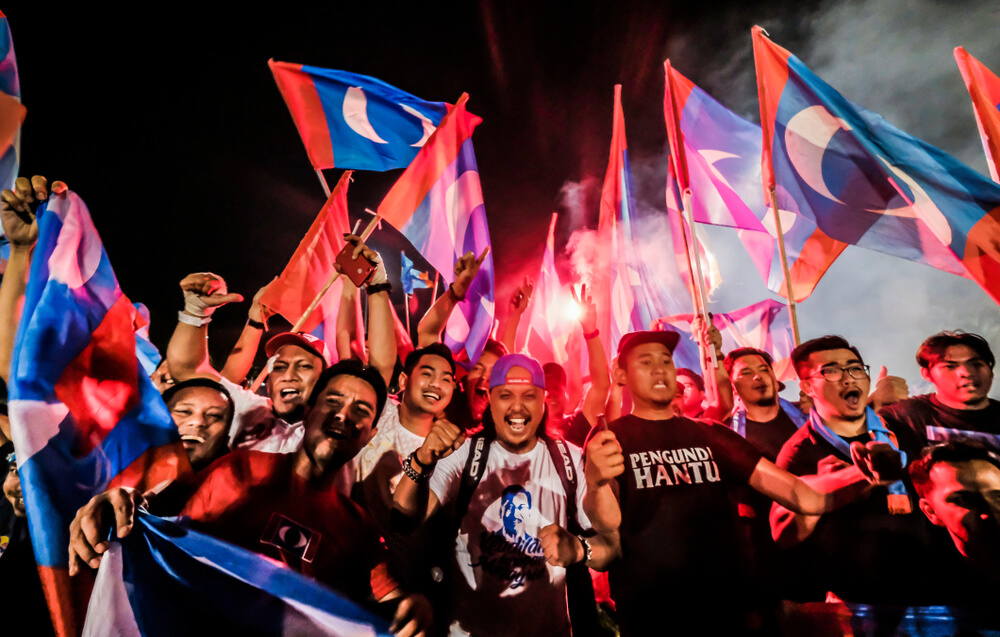
Supporters celebrating the win of Pakatan Harapan (PH) during the Malaysian general elections. Source: ShutterStock
That narrative made it easy to illicit content creation from many influencers that believed that they were creating content from the people’s perspective.
Meanwhile, BN depended on standard influencer-generated “I Love My PM” and manifesto-related postings.
Failing to tap into the wider connected network on social media, BN was not able to reach out the wider population of Malaysia.
“Simple analytics using pre-election datasets and living dashboard of sentiments would have given the BN Coalition room to maneuver the development and delivery of their content,” Axyrd suggested.
Instead, what is left of BN, is due to its inability to adapt and recalibrate strategically against the volatile and highly emotional voter sentiment.
All eyes on Jokowi
The next major election that will be catching the attention of the world, is the Indonesian one.
“The awareness of political actors towards data in Indonesia is increasing,” Hasanuddin Ali, CEO of Alvara Research shared his observations with Tech Wire Asia.
Alvara Research is an Indonesian data analytics firm, specializing in delivering insights for socio-political marketing.
Hasanuddin notes that more than half of voters in Indonesia are young voters, with ages between 17 – 38.
With more than 80 percent Indonesian millennials spending up to 7 hours a day on the internet, it represents a huge segment of voters that contribute to data online.
Looking at the capability of Indonesia in big data, it alludes to what is at stake in the upcoming election.
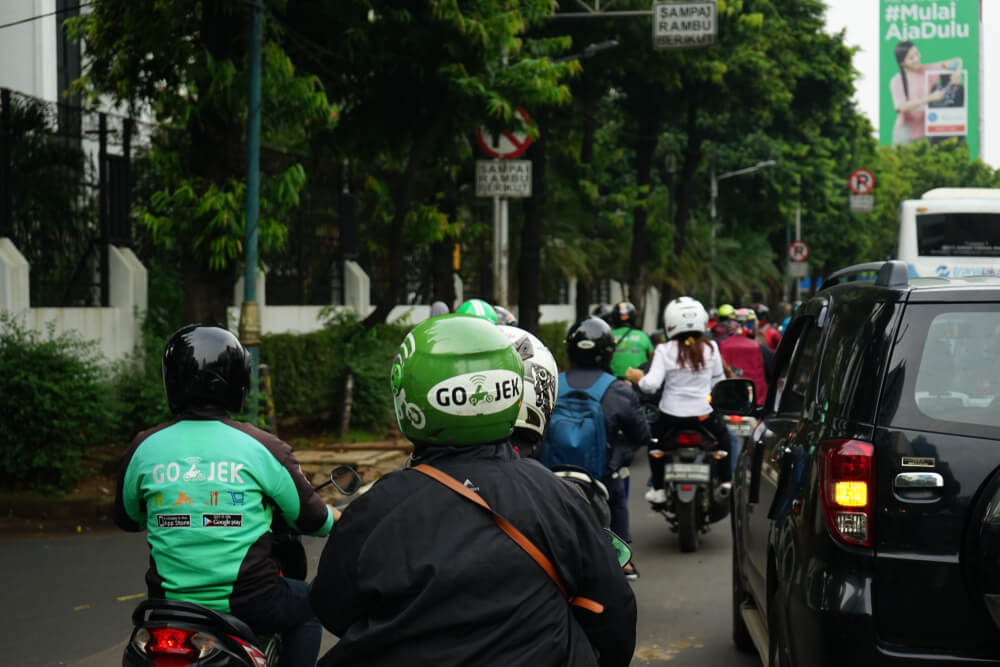
GoJek is a great example of a company leveraging the power of big data in Indonesia. Source: Shutterstock
Indonesia has been actively pushing big data initiatives across the country. One of the country’s most successful examples, GoJek, is used by most residents of the country. The application provides various services from rides to payment.
Just as Google collects user data to predict traffic conditions, GoJek similarly runs a big data engine to record information.
For example, it could predict the demand for certain snacks in a particular area within a time period. This allows the company to estimate the increase in demand for certain ingredients in the area.
If an Indonesian company can use data to grow its business that quickly, imagine if they used the data for elections.
As Hasanuddin points out, campaigners will have better results from using social media for campaigns in urban areas like Jakarta or Surabaya. “In rural and east Indonesia, usually we stick to conventional approach instead of internet-based approach.”
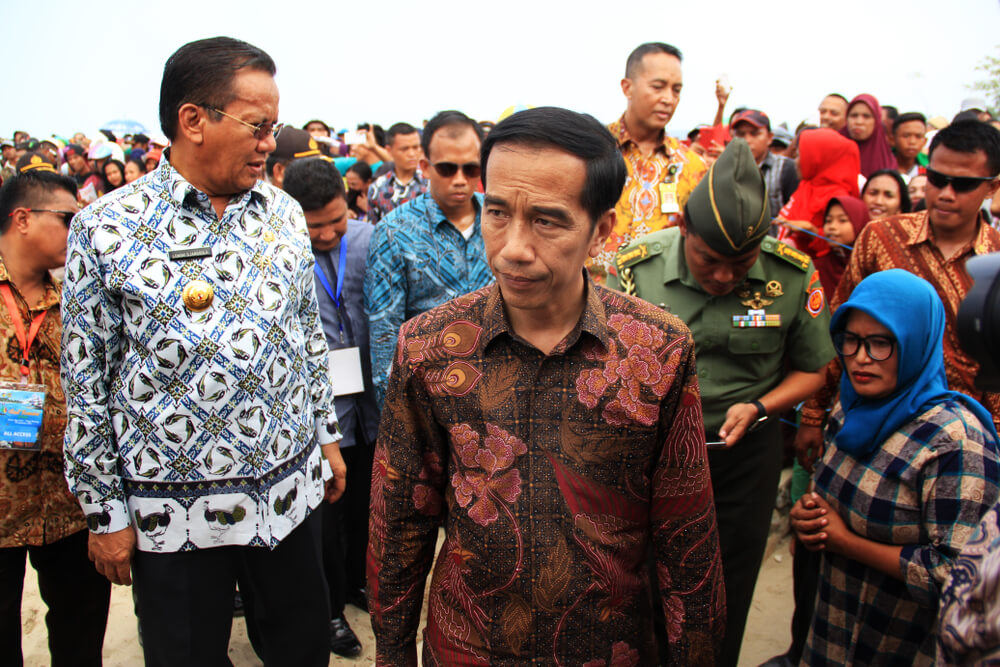
Big data can win elections. Can the current president of Indonesia Joko Widodo hold on for another term? Source: Shutterstock
Already, Indonesian Twitter is divided into anti-Jokowi and pro-Jokowi camps. Sentiment analytics show that the opposition camp has been making more waves than the supporters of Jokowi.
“Hopefully, political actors in Indonesia will be wiser in using social media for campaigning. They must be active in promoting their ideas and programs through social media, instead of just using social media for hate speech and bullying competitors,” Hasanuddin suggested.
Only time will tell if Jokowi will leverage data to survive a second term.
Data isn’t king
Although data can provide a lot of insight, not all data are useful.
“It’s actually so common to use data and analytics in our field that we sometimes have to remind people to listen to their gut instincts, too,” Bunnett explains.
Sometimes data doesn’t reflect on the effectiveness of a particular outreach effort. Usually, those claims are backed by a small number of tests. Bunnett advises that sometimes, numbers can be wrong, and it “shouldn’t outweigh decades of experience showing how powerful” a particular outreach can be.
Axyryd adds to that, after observing an increasing tendency for people to over-react to a certain stimulus, which could skew data on sentiment analytics.
Analytics should be used to automate processes of data collections and number crunching.
It is then the role of campaign managers and social media manager to take make strategic decisions that will impact voter sentiments.
Banks echoes their sentiments. “The richness of data now available is extremely useful. But you can be swamped by it too. The real skill is knowing how to use it most efficiently and effectively. You can run a very technologically sophisticated campaign that is talking to voters about the wrong issue or in the wrong way,” he concludes.
READ MORE
- Ethical AI: The renewed importance of safeguarding data and customer privacy in Generative AI applications
- How Japan balances AI-driven opportunities with cybersecurity needs
- Deploying SASE: Benchmarking your approach
- Insurance everywhere all at once: the digital transformation of the APAC insurance industry
- Google parent Alphabet eyes HubSpot: A potential acquisition shaping the future of CRM




